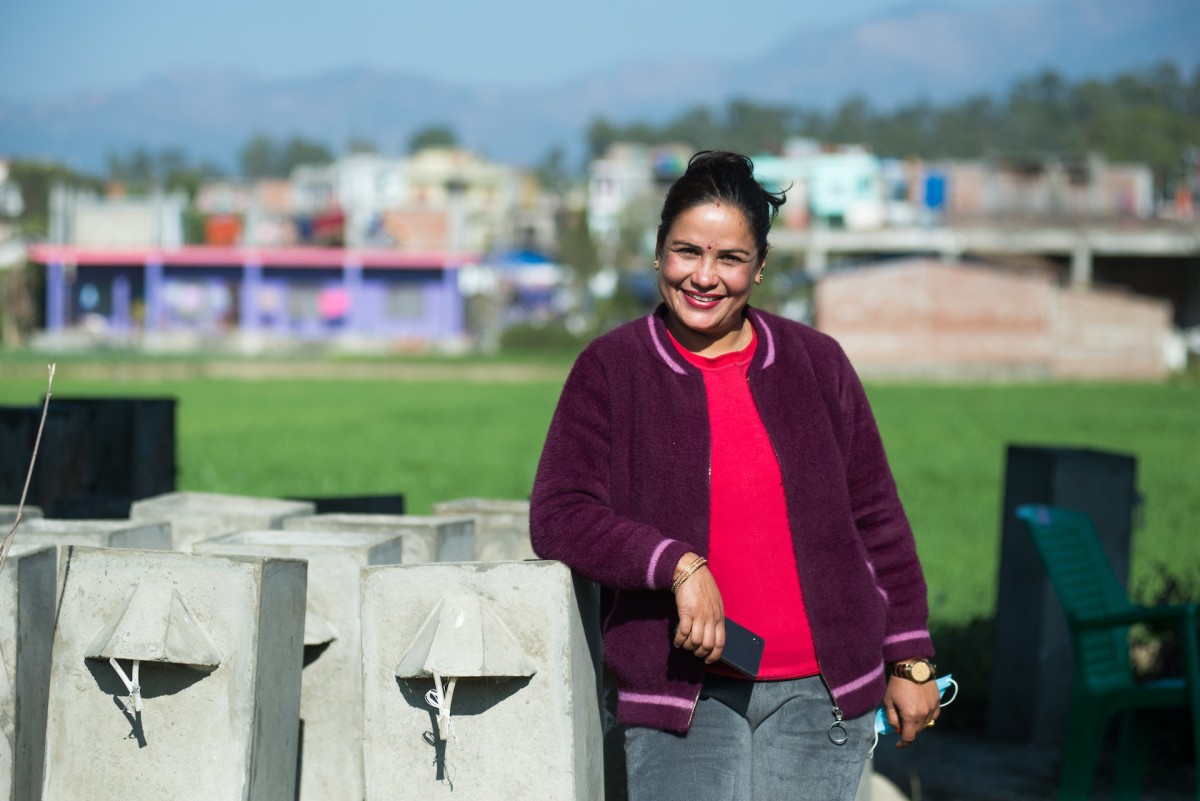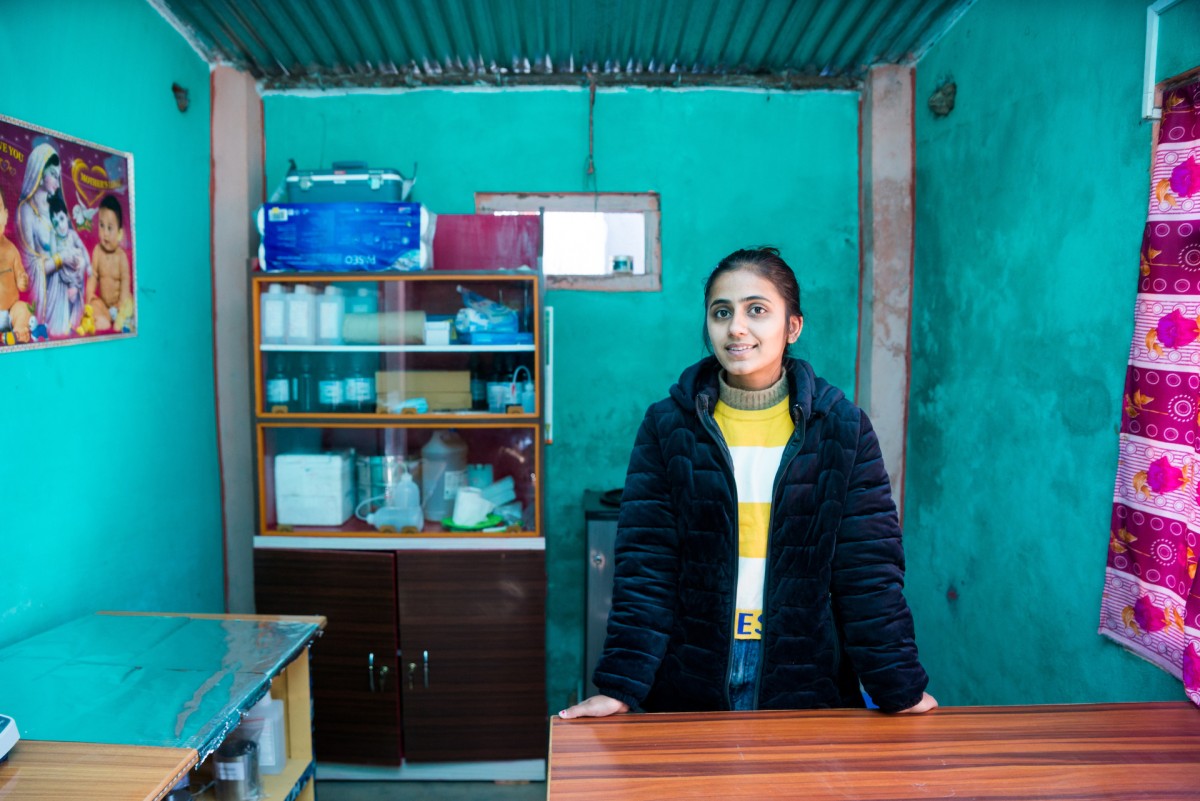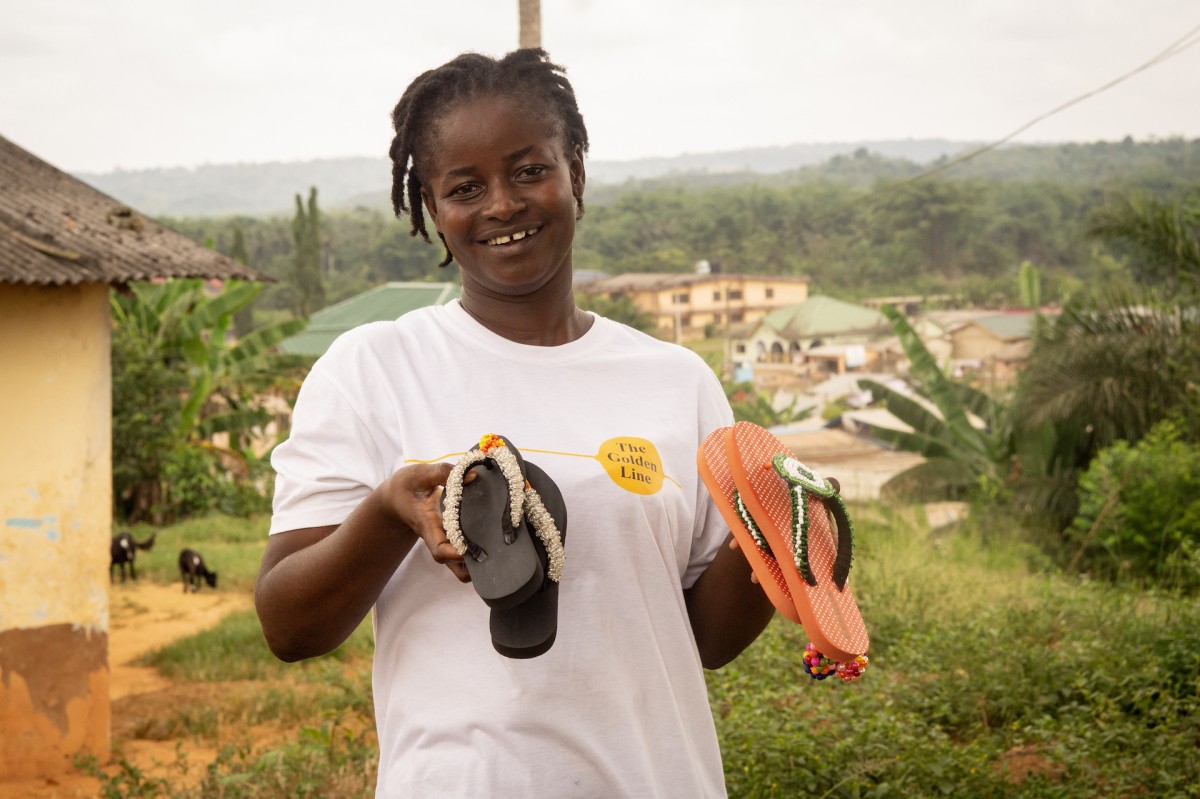Money is power. And women need more of both.
In most countries men hold the decision-making power and decide what the household income is spent on. This means women often do not have access to or control over assets (such as tools that are needed to make a product that can be sold) and resources (cash or a loan).
Emphasis on female entrepreneurship
We put a lot of emphasis on female economic empowerment and entrepreneurship and we see a big boost in uptake of woman entrepreneurship.
Why work on being economically empowered?
Being economically empowered enables women to access SRHR (Sexual Reproductive Health and Rights) and WASH (Water, Sanitation and Hygiene) services and products and make their own decisions. It also influences women’s status within their families and communities.
How do we work on this?
- We train women in finance literacy and provide them with relevant skills to generate an income;
- We give support to women on organising saving groups and expanding their network;
- We engage men and key stakeholders in moving towards gender equality and gaining their support for women’s economic empowerment.
Curious to see this put to practice? Meet three inspiring entrepreneurs.

Pabitra Kathayat, aged 31 from Nepal is an inspiring entrepreneur. She is the owner of Janata Udhyog, a small company which employs three women and one man.
Making water drinkable
Her entrepreneurship journey was influenced after receiving a training on bio-sand filtration from one of our partners (ENPHO) and after this she went on to establish her own bio-sand filtration business. She hand makes these filtration systems, thanks to which many families in Surkhet are able to filter water and make it drinkable.
During the first Covid-19 lockdown, we distributed her filters to many isolation centers and schools. Many buildings lacked basic facilities like a hand washing facility or water stations. And the bio-sand filters came to good use during this time.
Sustainable business
Currently one of our local partners from the WASH SDG programme (Biruwa) is helping Pabitra to create a business plan to ensure her business sustains in the long run.

Muna Adhikari (21 years) from Badichaur Nepal is a young technician involved with Mini Lab Barahatal, which is a water quality testing lab. This entrepreneur runs the lab along with her younger brother.
Interest in water and sanitation
‘My interest in water and sanitation is influenced by my father who owns a hard ware store. We also sell water, sanitation and hygienic products. I was thinking to start my bachelor degree when I got the chance to open a Mini Water Quality Lab and I didn’t want to miss this opportunity. Before I didn’t know what subject to choose for my study. However now I have registered for a course in environmental sciences, which is also relevant for running this lab.’
Via the WASH SDG programme Simavi has provided entrepreneurs of test equipment to measure the quality of the water.

Learning marketable skills
Naomi Asare is the facilitator of a women’s saving and loans group of the Golden Line programme in Essaman community in the Tarkwa-Nsuaem Municpal in Ghana. Naomi and her groups members participated in a business skills training of the Golden Line programme where women learned marketable skills, such as beads and soap and pastry baking.
Opening her own business
Prior to the business skills training, Naomi was making pastries and cocoa drinks for sale. The training however sparked her interest in beads making. She now makes beads in large quantities and uses them to produce key holders, vehicle tissue boxes, bags, purses, slippers, bracelets, necklaces and earrings. She had opened her own shop and has three apprentices working with her whom she mentoring to start their own business.
Role model for other women
Noami is acting as role model for other women sharing with them how she established her business and is motivating them to also participate in business skills training and improve their livelihood.

